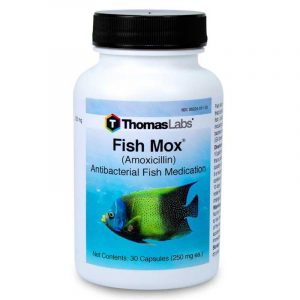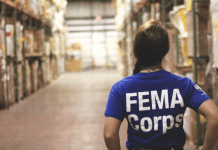What You Should Know About Antibiotics


Antibiotics are drugs that treat bacterial infection. You may wonder why your doctor will never prescribe any antibiotic until he gets to see you first. He first needs to check whether what you’re suffering is bacterial or viral infection. This is because viruses don’t respond to antibiotics. If you have a simple flu, the doctor never gives you antibiotics.
Basic knowledge in the difference between bacterial and viral illness may enlighten you. It could save you from your condition worsening. It could prevent the infection from growing worse. It will save you money and time. Here are four tips to guide you in identifying if your infection is bacterial or viral. Take this advice only if you can’t see a doctor.
- A bacterial illness is infamous for causing fever (normal body temperature is 37 degrees C or 98.6 degrees C, greater than those members is considered fever). A viral infection simply doesn’t cause fever.
- Bacterial infection lasts longer than 10 days while viral infection lasts 2 to 10 days.
- Bacteria usually cause site-specific symptoms such as those in sinuses, chest or throat. Viral infection normally causes wide-spread symptoms.
- A bacterial illness typically produces phlegm (yellow, green, bloody or brown-tinged). Viral infection may only produce clear or cloudy mucus.
Related: The Most Powerful Natural Antibiotics Known to Mankind
Typical antibiotic treatment last for 10-14 days. If symptoms persist such as neck pain, severe headache and persistent nausea, it’s best to see a doctor. Unfortunately, you can’t buy antibiotics in US without the doctor’s prescription. But this doesn’t mean you can’t stockpile then as an emergency medicine supply.
How to Obtain Antibiotics Without A Prescription.
Purchase Bird (or Fish) Antibiotics


Fish or Bird antibiotics are the same USP grade antibiotics manufactured for pharmaceutical human use. This means they are the same as the ones prescribed for people. They also come in capsule or tablet forms.
- Ciprofloxacin – Fish Flox Forte (500 mg)
- Metronidazole – Fish Zole Forte (500 mg)
- Amoxicillin Capsules – Fish Mox Forte (500 mg)
- Erythromycin – Fish Mycin Forte Pure Powder (300 mg)
You can also include Doxycycline – Bird Biotic (100 mg)
Related: Fish Antibiotics for Survival and How to Store Them
What are the Antibiotics that You Should Stockpile
There are a variety of antibodies out in the market. Some are generic and some are branded. For the most part, you want to stockpile the ones that will be useful in the widest variety of applications. Those are especially the ones which treat common infections caused by injuries.
- Amoxicillin – This is a good general antibiotic for many types of bacterial infections. It is safe for children and even pregnant women, although, some may be allergic to it.
- Azitrhomycin – This is a great brand of antibiotic used for many kinds of infections. The problem is that you can’t easily find or even buy it. you usually need a prescription to buy.
- Erythromycin – One of the most effective antibiotics to use for infected wounds. It can also be used for ear and respiratory infections, as well as some STDs. Safe for women and children. However, some people experience side effects, such as abdominal pain, nausea, vomiting and diarrhea.
- Ciprofloxacin – Best for things such as urinary tract infections, prostate infections, respiratory tract infections (such as bronchitis or pneumonia), bacterial diarrhea, anthrax, and diverticulitis or infectious colitis (when combined with Metronidazole). It should never be used by children, pregnant women or nursing mothers.
- Cephalexin – It is great for almost any type of respiratory infection (bronchitis, pneumonia, strep throat, etc.) and middle ear infections. It is safe for pregnant women and children and only has few minor side effects
- Keflex – This is another great antibiotic that can treat infections that aren’t eliminated by other antibiotics. You can’t take this if you are allergic to cephalexin or any other drugs.
- Zithromax – This is a ‘big gun’ antibiotic that treat hard to treat bacterial infections. It’s a good choice for people who are allergic to penicillin and its various derivatives. It is typically sold in a five-pill package, good for five days. People with liver problems should not use it.
How Much Survival Antibiotics Should You Stockpile
Most antibiotics are taken twice a day in a span of ten days. Zithromax is one notable exception for this. Also, in most cases, to treat an infection you will need two pills. There are various kinds of antibiotics for that type of infection they treat. Having 100 pills of one kind of antibiotic could be insufficient. You will likely need more many other types of antibiotics.
The amount of variety of antibiotics depends on the kind of infection experienced by your family in the past. For example, if your child has had many wound infections, the kind of antibiotic differs according to its potency in killing the bacteria.
According to medical studies, bacteria have the ability to easily create a kind of protein that may help counteract the antibiotics. For the first time that the bacteria get killed by the antibiotic, it is not 100% certain that the bacteria is fully wiped out.
Instead, some surviving bacteria will be able to identify the antibiotic and create their own version to make them ‘immune’ to this type of antibiotic. So the next time, this set of new bacteria encounters this same antibiotic, they could be immune. Now the antibiotic becomes less effective. Using the same antibiotic to treat the same infection, it may heal more slowly. You may need higher potency of the antibiotics. The cycle goes on. Eventually the antibiotic will be completely ineffective.
If another infection happens, you also upgrade your antibiotics. This is the reason why doctors need to prescribe you the right kind of antibiotic for the kind of infection you have, including your history of medications.
Related: The Only 4 Antibiotics You’ll Need when SHTF
The Risk of Taking Antibiotics Without Prescription
One thing to take note is the presence of antibiotic-resistant bacteria. According to World Health Organization (WHO), two of the reasons that they continue to emerge that make it harder to treat common diseases like pneumonia, tuberculosis, gonorrhea, and salmonellae, is misuse and overuse of antibiotics in humans and in animals.
Antibiotics-resistant bacteria means higher medical costs, longer hospital stay and higher chance of complications in infections. Aside from misuse and overuse, lack of infection prevention and control increases the chance for the bacteria to be resistant.
Did You Know That?
There are kinds of bacteria commonly called as “Superbug” because of their high resistance to any kind of antibiotic. This is the effect of mishandling antibiotics that these super-resistant bacteria have emerged.
Conclusion
Even if you want to stockpile for your own survival medical stock, it still pays to know the dangers and limitations especially when dealing with antibiotics. Antibiotics, just like any other drugs also have side effects. Even if they are lifesaver in times of injury or infection, improper dosage or mishandling may have serious consequences. Being secured for your medical stockpiling is good but still safety in using them is still better.





















